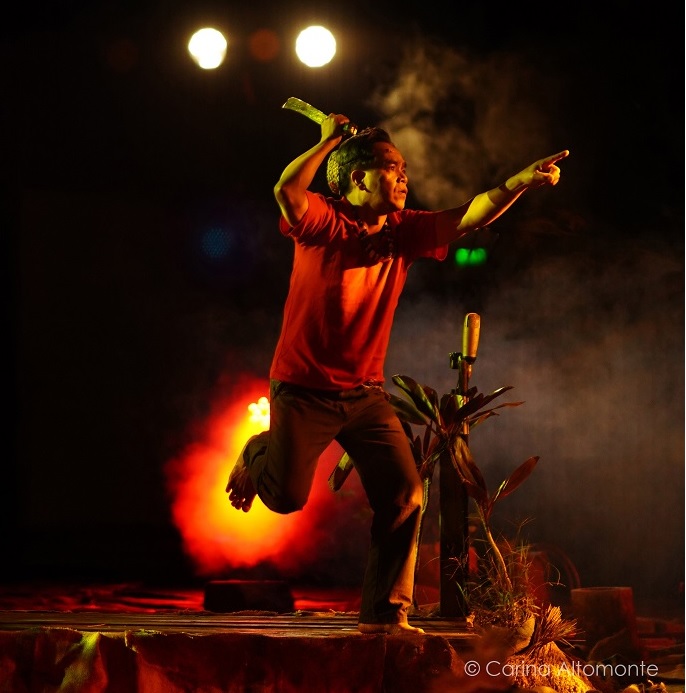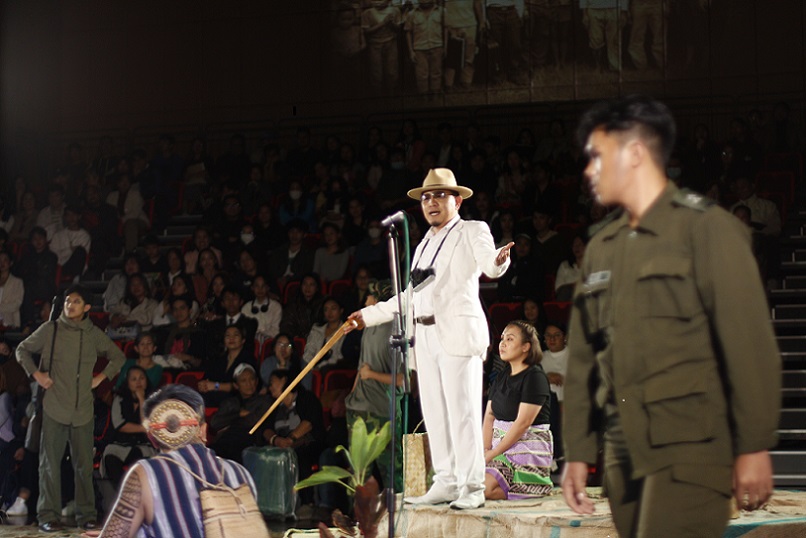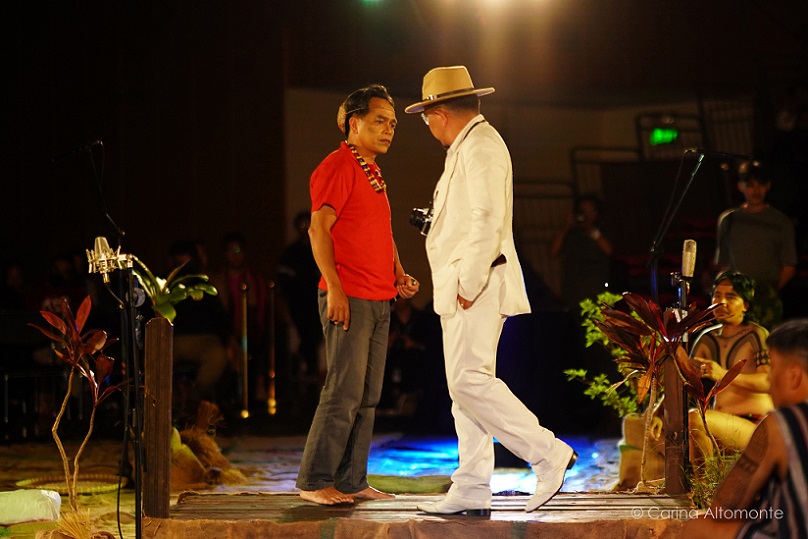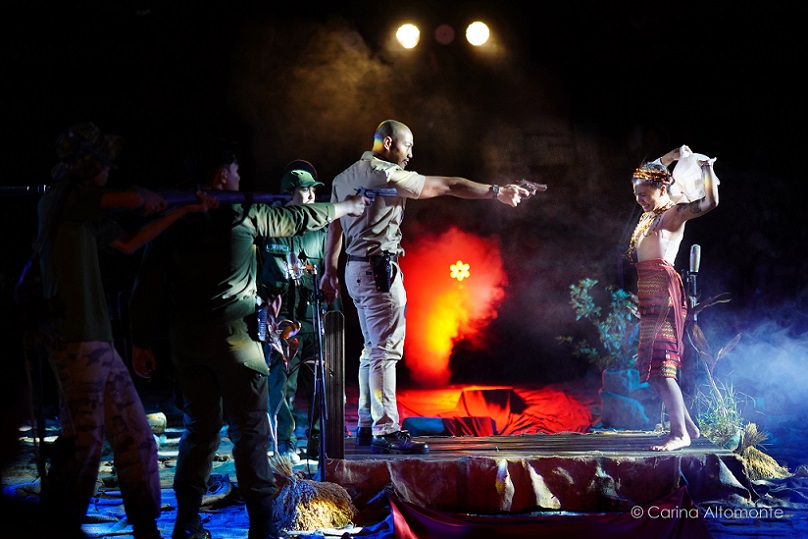Photos by Carina Altomonte and Levi Dalagonan


If there’s anything the two-night repeat performances of the play Macli-ing in Baguio City tell us, it is this—it deserves a wider viewing, especially by an audience made up of trainees of police academies and military schools. It sounds risky, almost crazy, but why not?
It is time men and women who aspire to wear the uniform be conscientized. The conversation should not just take place among like-minded people. Bring the so-called enemy in. And while you’re at it, invite senators, congressional representatives, the neighborhood tanod, too.
Why not a road show supported by state universities, civil society and other sectors so that the story of Butbut tribal elder-leader Macli-ing Dulag gets embedded in a younger and another generation’s recall? Or is this viewer of the Malou Jacob drama just dreaming again?


Truly, in the hands of director Karlo Marko Altomonte, Macli-ing is both a cry of the Cordillera heart, a scream of the oppressed Filipino soul. It relives, in a theater-in-the-round setting at the Baguio Convention Center, the years when the protagonist and his people opposed private business’ plans, supported by the Marcos government, to flood their ancestral lands and build the Chico River Dam Project.
The actor in the title role, Sixto Talastas or Chumiwar, is a dead-ringer for Macli-ing based on the latter’s photographs. One could almost hear the audience gasp at the uncanny resemblance of Chumiwar to the character he portrayed with alternating gentleness to his kin and fierce courage in the face of Marcosian power.
His speech, or Macli-ing’s famous words, on land ownership is spoken in a benign way, not with the oratorical drama that one half-expected. It were as though he was speaking like a patient teacher before a hardheaded pupil in the person of Puraw (played by Salaco Pampanico), the government lackey who came to offer monetary riches in exchange for the land.
That famed quotation is worth repeating as an indigenous peoples’ mantra: “You ask if we own the land and mock us saying, “Where is your title?’ When we ask the meaning of your words, you answer with taunting arrogance, ‘Where are the documents to prove that you own the land?’ Titles? Documents? Proof of ownership? Such arrogance to say that you own the land, when you are owned by it! How can you own that which outlives you? Only the race owns the land because the race lives forever. To claim a place is the birthright of everyone. Even the lowly animals have their own place. How much more when we talk of human beings?”


All throughout the play, the music of the group Salidummay is likened to a unifying thread running from the peaceful times in the community’s life (“Elalay”) before its militarization to the finale (“Ili Mi’d Kaigorotan”). That last chant, the program notes stated, “serves as a medium for recollection and call for solidarity and collective action.”
The production designers under Sulong Likha ensured that the rice terraces would be replicated or symbolized by a stage made up of “levels that serve as dynamic platforms” (again from the program notes). One marveled at the performers’ dexterity in climbing up and down these “terraces” without losing their balance.
The players, after all, are mainly Cordillerans, a number proclaiming themselves “proud Igorots,” some with deep roots in the highland city. They are used to the steepness of mountain and Baguio City roads. If this were a Manila production, the players wouldn’t have the home advantages that those in Baguio had, particularly fluency in the Iluko, Kalinga, even Filipino, languages, natural grace in executing native dances, the tattoos inscribed on their bodies, among many.
The play could’ve ended right there at the scene when the womenfolk, enraged by the murder of Macli-ing and the continued militarization of their place, band together, arm in arm, to face the soldiers in their tapis and tops. Moving as one, they strip themselves of their tops in an effort to collectively shame these men.


But a chilling epilogue followed to show what happened to the community members who survived Macli-ing’s assassination. The same chilling effect happened when the character of the Teacher (Rennie Serna), in lampoon style, earlier introduced the ways the authoritarian regime of Marcos made its opponents suffer through various forms of torture (“San Juanico Bridge,” waterboarding or water cure, rape, etc.). Macli-ing’s people were not spared.
What follows next? There is the planned Kaliwa Dam in the Sierra Madre that also threatens to drown the Dumagats’ land, sacred sites and lifeways to fulfill a demand for water, including drinking water. The Ahunan Hydropower Project, if opposition is not strong enough, will endanger the sources of clean, free-flowing spring water in Pakil, Laguna, a Southern Luzon town. That water is also good for irrigation, and the people there have relied on it for ages.
Filipinos can learn from how Macli-ing and the Cordillerans did it, how they dared damn the dam for a more equitable life.


